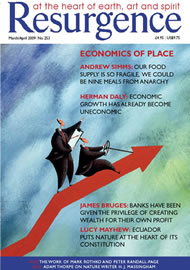THE 20TH CENTURY, so the histories say, exhibited a titanic clash between two diametrically opposed ideologies. The first was liberal capitalism, derived from Adam Smith’s seminal The Wealth of Nations. Its mantra was individualism, liberty, property, contract, economic opportunity, free trade and competitive enterprise. A night-watchman state protected the citizenry against violence, fraud, theft and invasion, settled disputes according to law, provided sound money, and stimulated wealth-creating enterprise.
In fierce opposition stood the counter ideology: communism and its gateway drug, socialism, derived from Karl Marx’s Communist Manifesto and Das Kapital. Its mantra was collectivism, the abolition of private property, state ownership of land and resources, central planning, the dictatorship of the proletariat acting through the vanguard of the party, fashioning the new socialist human, and conformity and order, enforced by a very attentive internal police.
Each of these ideologies came to regard the family as insignificant, irrelevant, or even mischievous. At best, under either ideology the family merited little official concern beyond promoting society’s need to produce more little capitalists and communists. And in that, writes Allan Carlson, lies a great tragedy of the 20th century.
Throughout this clash of ideologies the family, the foundational institution in every organised society, paid a terrible price. But outside of the totalitarian countries where no dissent was permitted, its friends did not roll over and die. Among them sprang up champions who sought a Third Way, a way that preserved liberty and property but insisted upon an economy constructed along family-friendly lines.
The Distributist League founded by G. K. Chesterton and Hilaire Belloc arose in the first decade of the 20th century, The English Distributists offered a strong and well-argued case for a policy favouring well-distributed private property in land, small-scale production, agrarian reform, and, invoking Pope Leo XIII, “the holy family of history”. But Chesterton and Belloc died and the League disappeared. “Perhaps a new generation of young men and women”, Carlson wistfully says, “might find purpose again in another ‘gathering of friends’” raising high the distributist standard.
By far the most interesting Third Way example in the book is that of the Bulgarian Agrarian National Union (BANU), led by the fiery Aleksandar Stamboliyski, who rose to be prime minister of an unstable coalition government in 1919. The BANU programme declared that agrarianism was neither capitalist nor socialist. It was founded on well-distributed private property, village autonomy, protection of the family, self-sufficiency, free trade of goods, co-operatives, progressive taxation, universal education, democracy and peace. It was a brave beginning. And it might have succeeded, but for the pro-fascist National Alliance and the dispossessed officers of the Military League, at least tacitly supported by the Socialists and the Orthodox church. The Communist-led coup of 1923 ended the agrarian dream. When Stamboliyski’s tortured and decapitated body was found, it showed almost sixty stab wounds.
The desperate housewives of the early 20th century were Swedish women who viewed marriage as a prestigious opportunity for women to build a strong society, by nurturing children and fulfilling the promise of the home in full partnership with their breadwinning husbands. For years they endured derision from socialists eager to destroy any institution that challenged the power of the state. The housewives’ last stand came in 1970, when the Riksdag ignored their protest marches to individualise the tax code, making housewives an expensive luxury.
Carlson offers a central prescription: keep competition and the quest for efficiency out of the family and the local community, and at the same time keep intra-family altruism out of meddlesome, bloated and tyrannical central governments.
Conscientious statespeople who absorb the lesson of this imaginative and trenchant book will gain a renewed appreciation of that vital human institution, the family. And they will be reminded that policies that undercut and enervate that institution cannot but weaken any society, and diminish all its brave hopes. •







